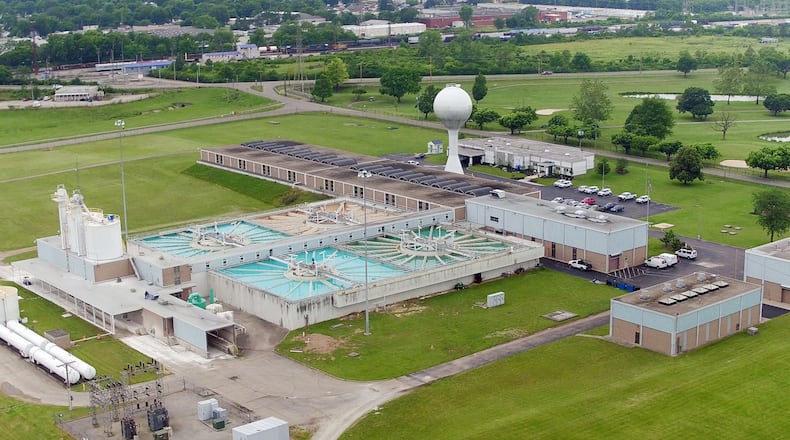The invitation to apply for the loan is a formality. The process called for municipalities to submit project proposals to the U.S. EPA months ago. The agency then selected which ones they’d like to fund, and invited the municipalities to apply. Dayton’s water department spent about 200 hours preparing its proposal with the help of a consultant, said Mike Powell, the city’s water director.
Dayton is one of two Ohio cities invited to apply for the Water Infrastructure Finance and Innovation Act loan. The city has up to 35 years ― including an optional five-year deferral ― to repay the money.
Officials won’t know what the interest rate is until the loan is approved, Powell said, noting that it’s based on the treasury rate, which fluctuates. The city’s required to provide a 51% match, and officials are looking for grants and other low interest loans to reduce the amount of money that comes out of the budget, Powell said.
Low interest loans are one of many ways the city plans to pay for its water infrastructure projects, which are part of its Water Reclamation Facility Master plan, Powell said. The goal is to pay as little cash upfront as possible in hopes of keeping utility bills low for customers, he said.
In all, 55 new projects in 20 states were invited to apply for approximately $5.1 billion WIFIA loans, the U.S. EPA said.
Dayton will use the WIFIA money to pay for multiple projects, including anaerobic digesters a technology that treats sludge, manure and other organic waste materials and produce natural gas. The city also will use the funds to rehabilitate existing systems.
The city’s biosolids improvements project ― which is part of the wastewater treatment process ― will also get a portion of the loan, Powell said.
The planning process for both projects are complete, and they’ll now move to the design phases. Construction on the anaerobic digester project is expected to start in December 2022 and last for three years. Construction for the biosolids improvements project is scheduled for December 2025-2028.
The city’s Water Reclamation Facility Master plan is aimed at improving the city’s water infrastructure over time. As part of that plan, Dayton officials in October borrowed $8 million from the Ohio EPA’s Water Pollution Control Loan Fund to reduce the amount of phosphorus in its wastewater discharge to comply with state regulations and avoid potential legal action.
That project started this month, and is expected to be completed in May 2022.
About the Author
